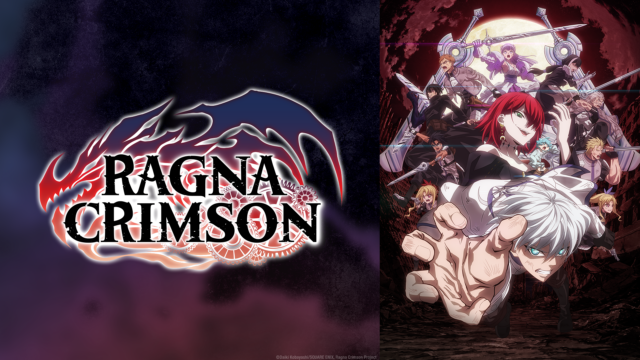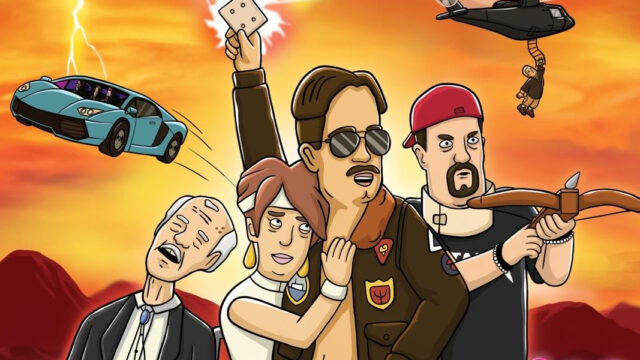English Dub Review: Big Fish & Begonia
Featuring music by Reel Big Fish and Guns & Begonias.
China. When they’re not getting rid of term limits and giving us disappointing Pacific Rim sequels, they’re laying the groundwork for a budding animation industry. This time, they’re finally giving us a look at “Big Fish & Begonia”, a story based off ancient Chinese folklore in the spirit of Miyazaki and releasing it with the help of Funimation, who provides the English talent.
The film’s story of a young spirit girl who accidentally gets a human boy killed and races to bring him back to life is told much like a fairy tale, which makes sense given the source material being Chinese myths, and as such allows for certain unexplained things about the world presented to be excused. Being a Western viewer, it would be unfair for me to expect everything I watch totally understandable solely based on what I’ve been exposed to. That said, there are moments where certain characters were able to do certain things or appeared seemingly from nowhere or with a little introduction that rustled me out of my viewing experience a bit. Like at one point one character is a person, and then suddenly they’re a tree, and then another character goes into the tree to make it grow, and then they’re fighting with a bird against another bird and…it’s all very colorful and awe-inspiring, but it can also be kinda confusing upon the first watch. One wonders if this was meant to be for a series, but then we wouldn’t have the high budget to work with.
It might also be possible that not having a film produced in the usual Western market allowed more liberties with the story. One aspect that surprised me about the majority of the story is that it’s almost entirely from the perspective of spirits looking at humans as alien things. Compare that to recent American films such as
“Coco”, which uses its human protagonist partially as an audience surrogate for our exposure to its own version of the afterlife in comparison to the “normal” world, while in “Big Fish”, the afterlife IS the normal world. That’s not necessarily an improvement, just not something I usually see.
The main characters, being children (and a dolphin), go up and down the scale of cute to annoying, but it evens out. Chun (Stephanie Sheh) and her journey to retrieve the soul of Kun (Todd Haberkorn, who MIGHT also voice the grandfather?) leads her to make some irrational choices and sacrifices, as does her friend and third wheel Qiu (Johnny Yong Bosch), but the earnestness of their emotions and struggles helped kept me more often invested than questioning it. I hope we’re not merely supposed to be taken by the spectacle and not the message because there’s certainly a compelling tale of sacrifice, loss, courage, and acceptance to be told here.
Production is partly done by South Korean company Studio Mir, whose founders and staff made “Avatar: The Last Airbender”, “The Legend of Korra”, the fourth season of “The Boondocks”, (look, we all make mistakes) and are currently working on the ongoing “Voltron: Legendary Defender” for Netflix and Dreamworks. Much like ATLA, this dives headfirst into the mythology it uses for its story, which always gave me something wondrous and imaginative to look at for any given amount of time. Mir has never been one to shy away from the anime influence, and there’s quite a bit of a “Spirited Away” vibe going on here, but more like if the protagonist of that film LIVED in that spirit world instead of just stumbling into it.
The mid-credit scene seems to be setting up more stories and the movie definitely made its money back in China to warrant a sequel, but this is still a fine start for what we got. Here’s hoping the People’s Republic lets some more of these come our way.
And please let Del Toro direct Pacific Rim 3. We appreciate the effort, but…c’mon.


























Hi Ashley, thank you so much for reading and we love the feedback. Note that on that day we had 14th posts go up and only ten posts show on the front page, so it's possible the preview had already been archived by the time you got to it. One recommendation would be to add our RSS feed to your favorite news aggregator service like Feedly, this way you get all of the latest posts!